More often than not, manufacturers of protective coatings provide warranties, promising that their products are going to endure a specific amount of years.
These promises are made based on the specific coating’s durability under ideal installation and maintenance circumstances, which is a common business practice in many industries.
The problem is - nothing in the coating world is guaranteed. You can use the world’s best product and install it perfectly, only to have it fail 6 months later if it’s abused.
Unsubstantiated Marketing Claims
The protective coating market is a very saturated one. That’s why many companies resort to empty promises to get more sales. Some even outright lie.
Claiming that a coating is a bulletproof shell that prevents common defects like scratches, scuffs, and chips; or that a coated car will stay clean and shiny forever - is misleading and simply unethical.
Apart from that, claims like “10-year coating” create an impression that the coating’s durability depends merely on the product itself.
In reality, how long any protective coating lasts depends on many complex factors.
To achieve the best results, the vehicle needs to be completely cleaned, its paint decontaminated, corrected, polished, and degreased. The product must be installed in a controlled environment, with adequate lighting, using proper tools. Then, the vehicle has to be protected from the environment while the product cures.
Even if you do all of this right, the prep and application are just one part of the picture - maintenance and usage are the other. If the car is a perfectly maintained garage queen, a 3-year coating might last 5 years. On the other hand, if it’s a neglected daily driver, a 5-year coating could remain intact for just a year.
Deceiving to Drive Business

Dishonest marketing tactics wouldn’t be that big of an issue if the companies using them backed them in their warranties.
Sadly, that’s just not the case.
Even though many coating manufacturers exclude paint defects like scratches and chips from their warranties, the marketing departments of these companies advertise them as prevented. Even though the warranties state that you need to reapply the product every year, the marketing departments advertise them as permanent protection.
Marketing materials: 10H hardness, superhero armor, sun-resistant, water repellent, lifetime of protection, cuts maintenance by 80%.
Actual Warranty: does not cover scratches, scuffs, and chips; does not cover water sports or etchings. Requirements: hand washing every 2 weeks, paint decontamination twice a year, topper every 4 months.
So, these companies are selling high expectations that their products can’t live up to and giving out warranties to back their claims. The problem is - when people hear that they have a warranty on something, they expect that if an issue occurs, they won’t have to pay to get it fixed. That’s simply the way warranties normally work.
Here’s an example. If your TV is broken and you have a warranty on it, you get in touch with a manufacturer like Samsung and they cover the entire cost of getting it fixed by an installer, at least in the first year or two. They don’t send you the part that needs replacing and tell you to pay for the labor yourself.
This is why it’s hard for people to understand that coating companies make big claims and then walk them back in warranties with legal verbiage that voids coverage, leaving the installers to deal with unhappy customers on their own.
Coating Warranties

As we mentioned before, most surface protection companies warranty a specific amount of years their products will endure.
But that always comes with a long list of things you can’t do, and a list of things you must do for that warranty to stand.
As the saying goes "if it sounds too good to be true, it probably is".
Here’s the catch: a lot of the items on the first list are common occurrences like going to a drive-through wash or using certain chemicals. A lot of the items on the second list are things the majority of car owners don’t do.
To shine some light on this issue, we analyzed warranties issued for pro-grade coatings by 10 different companies. Here’s what we found.
Coverage
All coating warranties we went through are only applicable to certified/approved installers when annual (or bi-yearly) service requirements are met. Missing the scheduled inspection voids the warranty. You also need a warranty card registered within 30 days of coating installation and a strict maintenance schedule: bi-weekly hand washes or visits to a touchless drive-through.
The coated vehicle has to be non-commercial and remain registered throughout the duration of the warranty. This means that if you have a coating installed on a show car that’s not registered for use on the road, the warranty doesn’t apply.
Some companies state that the warranty applies only to factory-painted surfaces or excludes matte-painted vehicles. Some offer a different amount of years for the warranty depending on how old the car is. Others require that all vehicles older than a couple of months need to be polished & prepped with their products. Many give out warranties only if the vehicle is newer than X amount of years, with less than X amount of miles on the odometer.
If you meet all of these requirements, great! Warranties by most companies cover environmental damage and contamination. This includes things like acid rain, UV damage, fallout, bird droppings, tree sap, insects, salt, overspray, fuel stains, brake dust, etc. Gloss reduction, paint chalking, and oxidation are also commonly included. If you’re lucky, your warranty will also cover water spots or peeling and bubbling of the coating. However, if you’re unlucky, your warranty will only cover gloss retention or be so vague that it doesn’t even state what exactly it covers. If that’s the case, don’t be surprised if you see a long list of things that the warranty doesn’t cover. These companies have no problem with writing the exclusions section clearly.
The maximum amount that coating manufacturers cover varies, but is generally around 1K. However, when you make a claim it often terminates the warranty. So if your coating comes with a “lifetime warranty”, it’s really only valid until something goes wrong the first time. If it happens again - you’re on your own. On top of that, if you have an issue with the coating, a lot of the time you need to get in touch with the detailer that originally installed it. If they’re out of business or unavailable - your warranty may not be valid.
What’s obviously missing from the list above is hydrophobicity - we haven’t found a single warranty that covers it. Very few cover swirl marks and water spots, and none cover marring, scratches, scuffs, scrapes, and chips to the paint. Although all of the coatings we looked at have to be installed by certified detailers, the warranties by the companies that certified them don’t cover workmanship errors like high and low spots, streaks, smears, etc., or damage caused by abrasive tools.
Look at the terms & conditions yourself. Read the fine print.
From our point of view these warranties are practically useless, or worth very, very little. They cover things that realistically won’t happen like oxidation (unless you have an old timer; in that case, the warranty probably doesn’t apply anyway), but don’t cover things that happen all the time with coatings, like the loss of hydrophobic properties. Basically, you’re paying for something you’ll never get. Plus, there are so many exclusion factors and unclear, gray areas.
Claims
Warranties are simply a numbers game of cost vs. claims. In the detailing industry, the average claim rate is 0.5 - 3%, meaning that warranties are highly profitable for manufacturers.
But why don’t people make claims when they spend money on products that come with them?
Because of the ridiculous requirements that coating companies insist on and loopholes that allow them to easily deny potential claims.
We touched upon these earlier. They exist to make warranties so difficult to claim that detailers don’t even bother - they cover the cost of labor themselves to make their customers happy.
The thing is, voiding a warranty is very simple. All you need is a blanket statement - a disqualification clause to refer to. For example, the manufacturer can say, upon inspection, that the detailer or the customer have been negligent and failed to maintain the coating properly - and that’s it. You get nothing.
Coating warranties are filled with exclusion clauses like this one. Actually, that’s mostly what they consist of.
Okay, so what happens when you make a claim and manage to make it stand?
First, the company grills the installer, denies everything, and tries to make it their fault. If you’re lucky and they can’t, they’ll reimburse you for the product used, but not your labor, time, or supplies - and act like they’re doing you a favor!
Here’s some more of our coating - just slap it on again.
Because this is common practice, some manufacturers even encourage detailers to "pad" their installation prices to cover any future claims in advance.
This just doesn’t make sense. Coating companies that offer warranties only work with certified installers that they’ve trained. This means they should be ruling out installer error when a claim is made at least 90% of the time. Apparently, none of these companies stand behind their detailers or their products like they should.
Lifetime Warranties?
Lifetime warranties are an issue that we need to tackle separately. Today’s consumers know that they’re not true, yet some companies push them aggressively.
Advertising a product as permanent and providing a lifetime warranty deteriorates the credibility of the coating company and the detailer that offers it. It’s misleading and quite frankly - bad for business.
Nothing truly lasts forever, including protective coatings.
The #1 reason for this is human error. If a coating is poorly installed or neglected, you can’t expect it to last very long. And even if you do everything right, coatings form a bond with the paint on a molecular level. This bond loses strength over time and will eventually dissipate - no doubt about it. All that will be left is the topper you’re applying for maintenance.
Lifetime warranties come with stipulations and additional maintenance procedures.
Even if you have a garage queen, correct its paint to perfection, install PPF and a protective coating - you still can’t expect the coating to perform for a lifetime.
And what’s even considered a lifetime? The 5-10 years that the average person keeps a vehicle?
Oh, and what happens to the warranty if the manufacturer or detailer goes out of business?
Make Warranties Your Friend

One thing’s for sure - warranties make people feel better about the service you’re providing, helping you make the sale.
But backing manufacturers’ claims and overpromising is a slippery slope.
It’s impossible to say how long any coating will last in any specific case - there are just too many variables. Because of this, it’s unfair to promise your customers that their ride will be protected for a specific amount of years - no matter what the coating company says.
Stop selling coatings and start selling a service.
People trust you and your expertise. You can either be honest with them or take advantage of their ignorance.
The right thing to do here is to educate and empower your customers on how to properly care for their vehicles. Explain why a maintenance plan is important to ensure they get the most bang for their buck. Ask qualifying questions and recommend the best solution for them personally. You don’t need a warranty for this.
In-house Warranties
If you still want to have a warranty, but not a bogus one, you can create an in-house warranty for your customers.
In this case, you warranty the coating, not the manufacturer.
You can warranty only the proper installation - full coverage, no high & low spots, and proper curing, or include longevity as well. For example, if the coating you’re using is rated for 5 years by the manufacturer, you can provide a 3-year warranty and a card explaining what voids it.
The warranty card can include things like maintenance details a couple of times a year and regular, proper washing. You can consider providing a shorter warranty if the application didn’t include paint correction, if the vehicle is older, or if you live in a climate with harsh environmental conditions.
For those of you that want to stay away from promising years of performance, consider a mileage warranty. The average miles driven per year is a little under 15K, so for a coating that’s rated as a 3-year, you can warranty +25 or 30K - whatever you’re comfortable with.
Warranty vs. Guarantee
A guarantee is a promise from a manufacturer that their product will meet certain quality and performance standards. A warranty is a type of guarantee that promises a remedy if the product fails to meet certain specifications. It has limiting conditions, meaning that it’s fulfilled if the buyer honors specific duties proclaimed by the manufacturer.
Both a guarantee and a warranty require companies to act on certain promises. The difference lies in the level of confidence the manufacturer expresses regarding the product’s quality and functionality.
If you want to avoid misleading customers into thinking that any potential damage to their coating is covered in advance, it’s a good idea to use the word “guarantee” rather than “warranty”.
A Note for Customers
Two factors determine the longevity of a protective coating, other than what it’s rated at by the manufacturer: the quality of installation and how you maintain the vehicle after installation.
To ensure quality of installation, don’t choose a detailer for the products they use, but for their skills and experience. A 3-year coating will perform better than a 10-year if one is installed by a professional, and the other by an amateur. As for maintenance, know that the life of the coating is essentially up to you. If you neglect your vehicle or care for it improperly, you won’t see the expected longevity and performance.
Before you invest in any type of paint protection, do your homework as a consumer.
If you want to get a coating installed, remember that it’s not a permanent shield that protects your car from all mechanical, environmental, and chemical damage for whatever number of years. Keep in mind that it will make maintenance washes easier and keep your car clean for longer, but won’t eliminate the need to wash.
Also, beware of false advertising, and don’t buy into the hype.
By this, we mean the “hardness” narrative. For years, consumers have been told that 9H is as hard as a coating can get. Then all of a sudden we have 10H coatings. The issue here is that the difference between 9 & 10H isn’t just one point - the hardness actually doubles with each point. This would mean that a 10H coating is twice as hard as a 9H, which is nearly impossible. And even if it were true, the H (pencil) test only shows that the coating can protect your paint from a scratch caused by something not harder than a pencil lead. Not very hard, huh?
Conclusion
The detailing space is being flooded with new coatings every day. To gain consumers’ trust and grab a hold of the market, manufacturers are resorting to shady marketing tactics - bold claims and useless warranties.
The products of these companies rarely live up to the high expectations. What’s worse, you can’t rely on them to hold up their end of the bargain. Many companies actually design their warranties to iron out any possibility that you, as a customer, will be able to make a claim against their product.
In reality, it’s not about the product itself. Every professional coating is going to perform well if it’s installed and maintained correctly. Most people can’t even tell the difference between different brands, and most customers don’t care. What truly matters is how the coating company treats you and what it does for your business.
That’s why we at Undrdog don’t have a warranty. We want to put the control in your and your customer’s hands. Our goal is to establish trust by promising only what we are sure to deliver.
We can’t know or predict how your customers will take care of their vehicles. So we can’t pinpoint the exact amount of time our coatings will last, and aren’t willing to make uneducated guesses.
What we do guarantee is this: we stand behind our products 100%, no matter what, no questions asked, no holds barred, no ifs, no buts. If you have a problem, we will solve it. Refund it. Send you a new product. Whatever it takes. Just reach out.
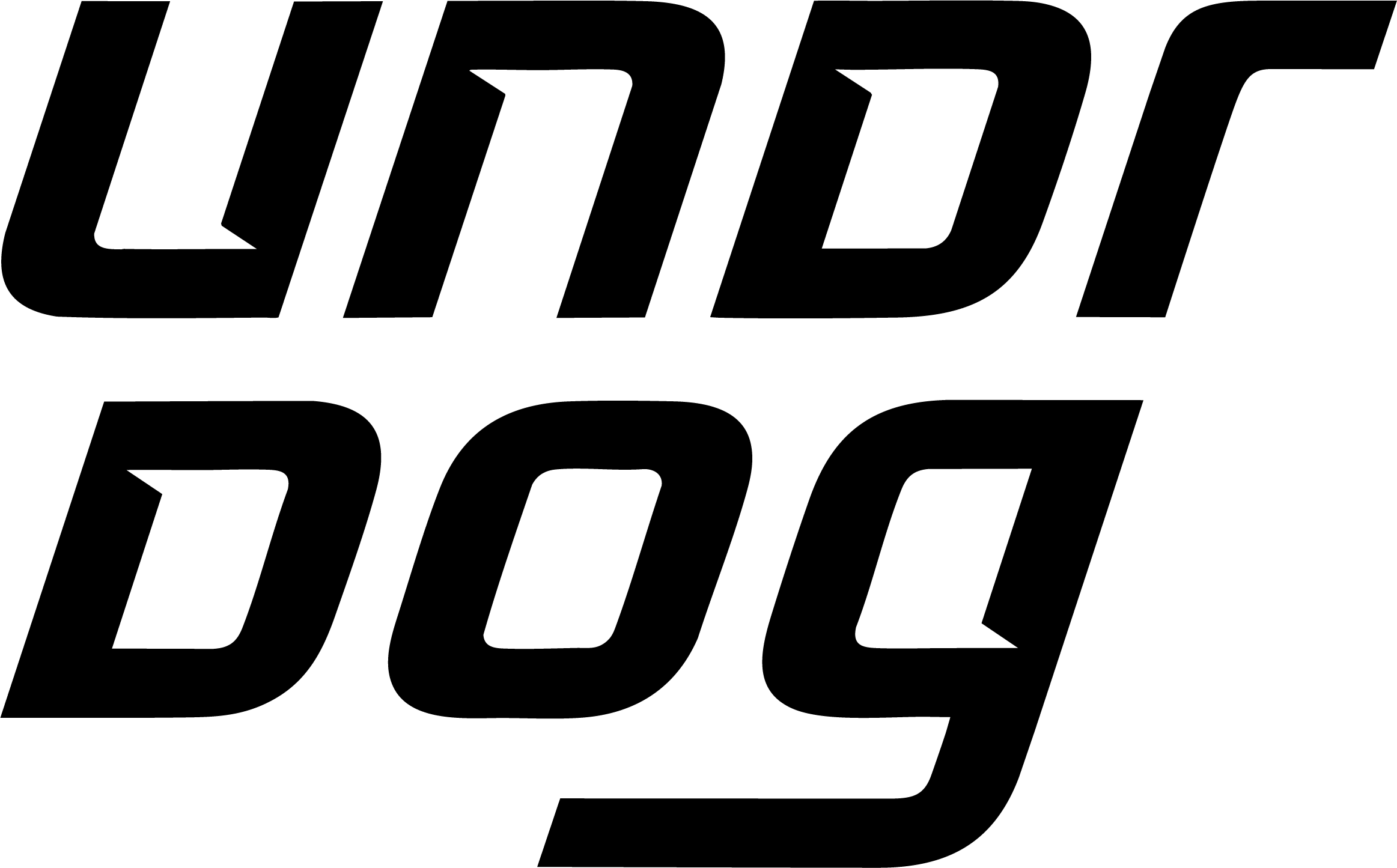
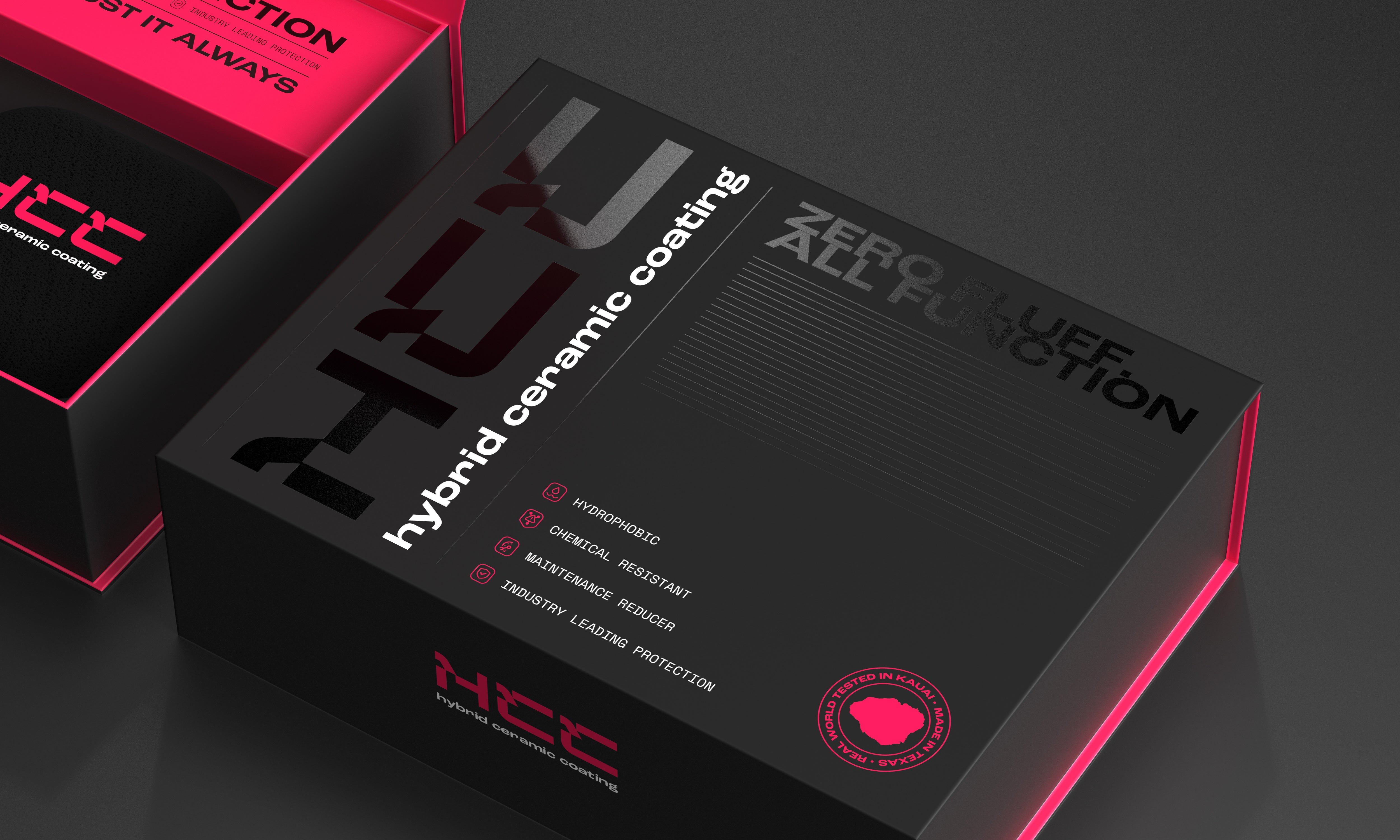
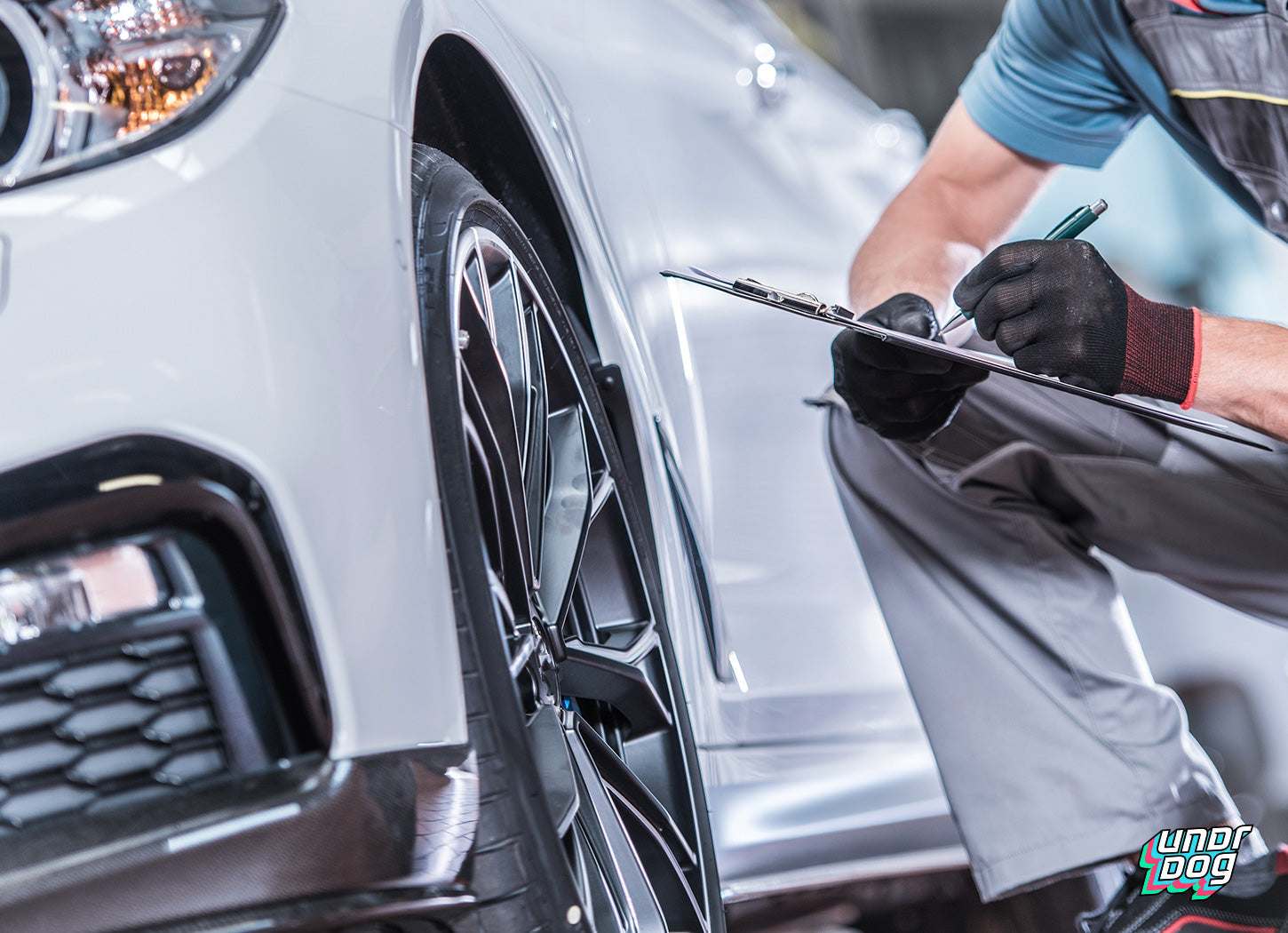
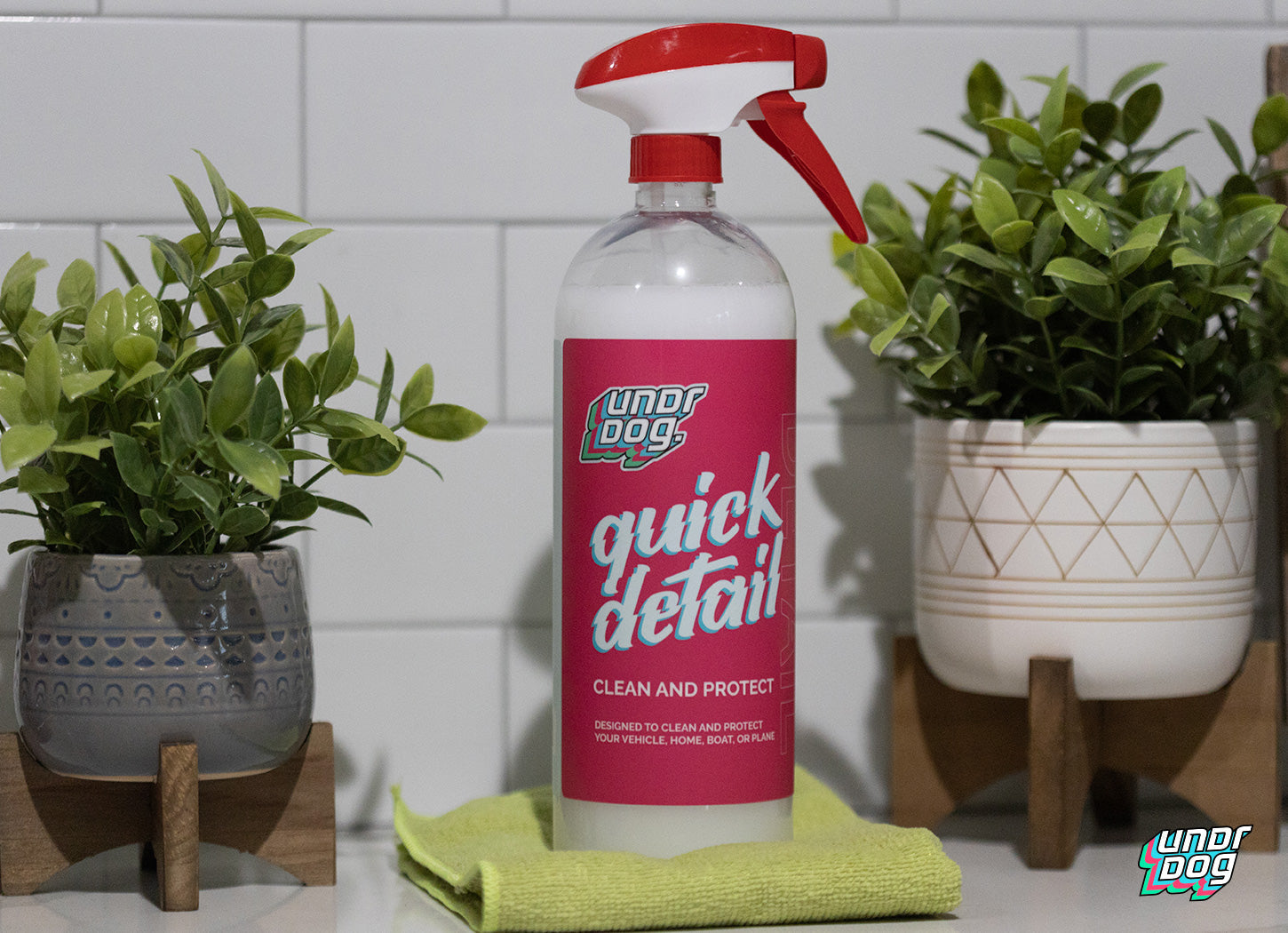
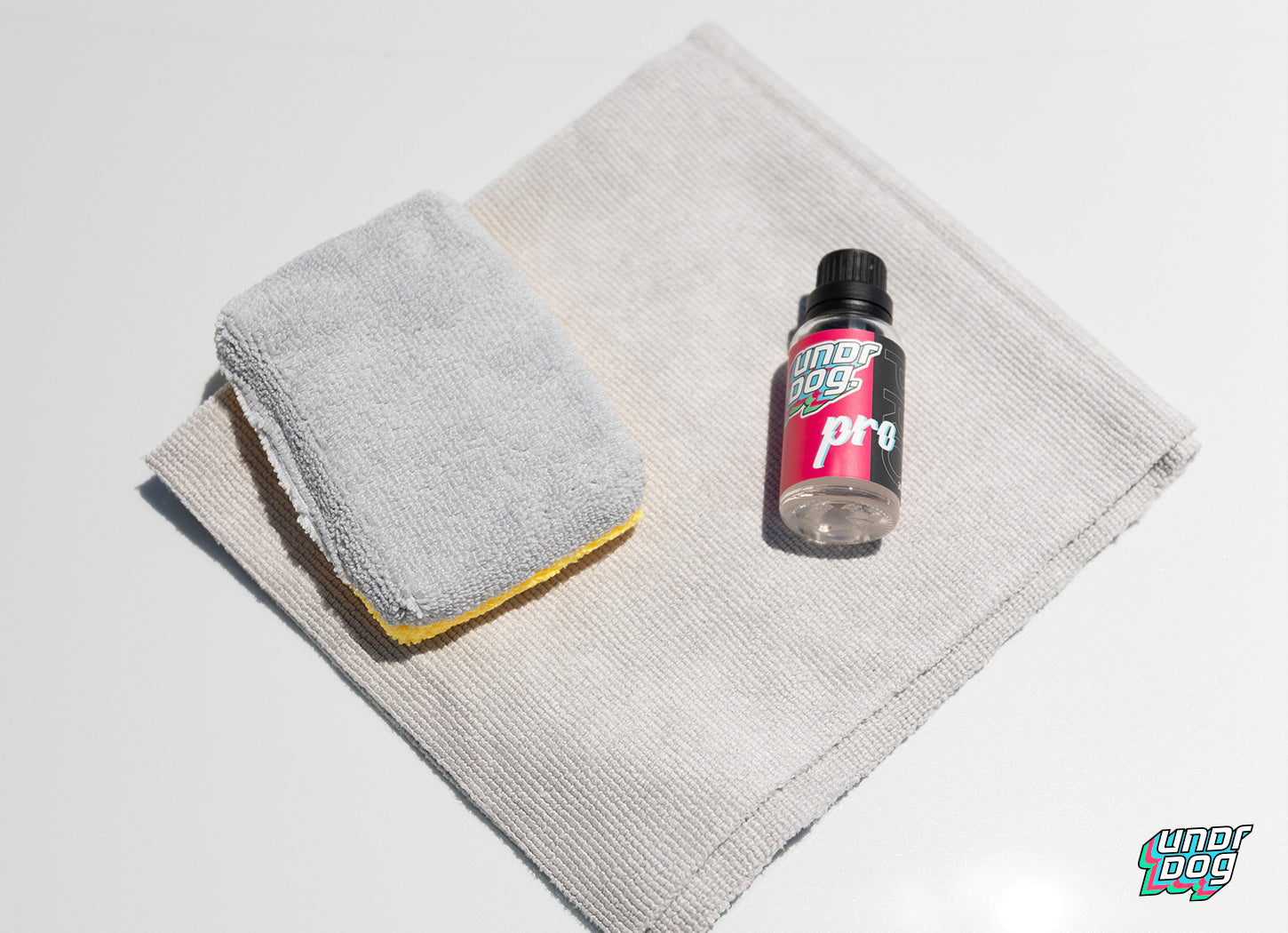
Leave a comment
This site is protected by hCaptcha and the hCaptcha Privacy Policy and Terms of Service apply.